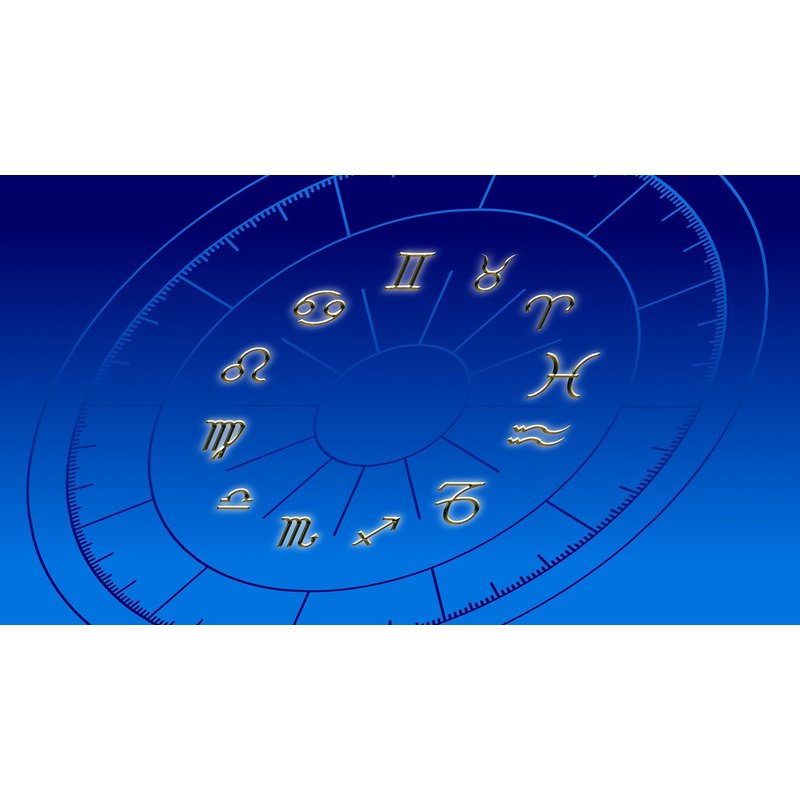This article is part of a column rumor detectorClick here for other texts.
Facts to remember
– Scientists tested astrology
Astrology deserves the label “pseudoscience” but not because of its “unscientific” origins.
Astrology is based on a very simple premise: the positions of the different celestial bodies (the Moon, planets and even some asteroids) at the time of our birth will reveal secrets about our personality and our future. Some astrologers also claim that the location of these celestial bodies affects the course of events – political, economic and social.
The mechanism behind the “impact” that is supposed to be able to reach us millions, if not billions of kilometres, is not fully explained by astrologers. But this does not matter: if there is indeed an influence of the planets on events or on characters, we can then measure it. In other words, from a statistical point of view, one should be able to notice that there is more such and such and less than such and such something else, when Jupiter is in such and such a place in the sky.
Scientists tested it. Since the 1950s, a series of studies has looked at many aspects of astrology: the events predicted, the zodiac signs said to lead to certain career choices, or the ability of astrologers to match astrological and individual profiles. The results of these studies are devastating.
Faced with such a backlog of evidence that disproves their hypothesis, “normal” scientists will seek to improve it, study it in more depth, or even replace it with a better theory. But astrologers, in the face of this backlog of evidence, have instead chosen to ignore or reject it.
their reaction to Study published in 1990 Explains it. The researchers designed their study in full collaboration with the Indiana State Astrologers Association. Moreover, the star chart of the chief investigator, which shows where each celestial body was located at the time of its birth, was examined by the Federation. The study itself was straightforward: Six astrologers were to receive 23 birth charts and had to match them with 23 individuals, the astrologers had access to a picture and their answers to a long questionnaire, which was designed for them. by the union.
The result: Each mine tested had zero to three matches out of a total of 23, with an average of just one match. After this poor judgment, the Association of Astrologers chose to say that astrology does not always give quantifiable results, but it works anyway.
This kind of reaction from astrologers has already led the philosopher of science, Paul Thaggard, to Announced in 1978 That astrology was a pseudoscience. This qualification has nothing to do with non-scientific origins: chemistry, for example, arose from alchemy. Nor was it due to the lack of an explanatory mechanism for the planetary “impact”: for example, the theory of continental drift was correct, even before the discovery of plate tectonics that explained its action.
The reason for calling “pseudoscience” was that the community of astrologers almost refused to confront the music. Astrology has progressed less over time than “alternative” theories such as psychology. Although it could have been called a budding proto-science, it became less promising, before eventually acquiring the name pseudoscience.
power of attraction astrology
The fact remains that astrology has a certain allure. The data shows that people are fascinated by their astrology Religious perspective, without belonging to a major religion. Surveys have found that astrology is more attractive to individuals who pretend at an average level from scientific understanding. Indeed, at first glance, astrology seems to have the characteristics of a science: it makes predictions, seems to be based on calculations and provides itself with systems and structures.
same People with a skeptical look You can get caught up in the astrology encounter in the game when you produce Positive descriptions of themselves. The magic of this pseudoscience is enhanced by the basic functioning of our brain, which prompts us to search for meaning, order, amidst random data, and searches for intentions in the midst of natural events. In times of crisis, astrology predictions can give us the impression that we are more in control of the situation.
Astrologers said that may explain why last year, several months into the epidemic Experience a revival in popularity.
This article is adapted from the English text of Jonathan Garry Published on the siteMcGill University Science and Society Organization

“Subtly charming problem solver. Extreme tv enthusiast. Web scholar. Evil beer expert. Music nerd. Food junkie.”

